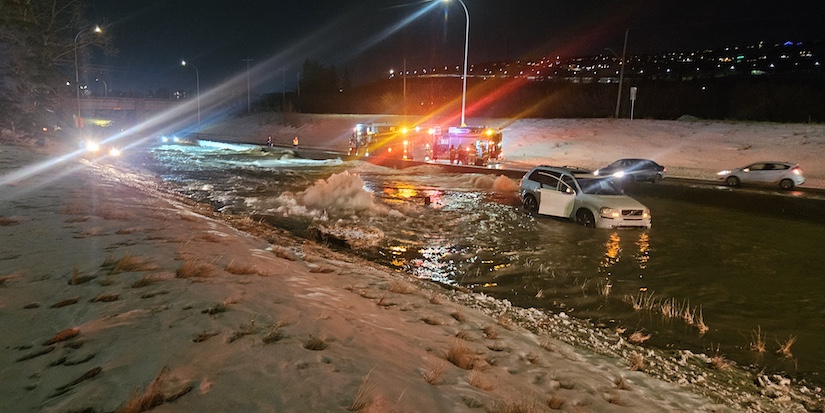Latest News
I can’t believe that’s a law: Newfoundland Edition

Published 11:39 PDT, Fri June 20, 2025
—
DISCLAIMER: The following article is for informational and entertainment purposes only, and does not reflect the views or opinions of the Richmond Sentinel. In our last edition, we took a look at the quirky laws and bylaws found in the Province of Nova Scotia as part of our 13-part series. In this edition, we head to the easternmost province in Canada, also known as the Province of Newfoundland and Labrador to see what quirky laws and bylaws were or still are enforced.
1. In 2008, the city of St. Johns enacted a bylaw that prohibited “a horse, cow, calf, swine, sheep, goat, fowls, geese or ducks” from being kept in a dwelling or part of a dwelling. A dwelling can be described as a house or building, or portion of a house or building, which is occupied in whole or in part, as the home, residence, or sleeping place of 1 or more persons. The main purpose of this bylaw was the ensure that there was a practical boundary between agricultural and residential spaces, and that farm animals remained outdoors for safety, sanitation, and zoning reasons. (City of St. John’s Act, RSNL 1990, c.C-17)
2. Between 1886 and 1948, Canada had prohibited the production, importation, and sale of margarine. The ban, strongly influenced by dairy farmers, was circumvented by one province. In 1949, when Newfoundland and Labrador joined Canada to become one of the provinces, it secured the rights to produce and sell margarine through Term 46 of the Terms of Union. This resulted in many attempting to bootleg and smuggle margarine across province borders. Eventually, it was determined in 1948 by the Supreme Court of Canada that margarine should be regulated by provinces resulting in the repeal of the bans margarine in most provinces. New Foundland’s margarine clause ensured the province’s margarine industry could thrive without federal interference, and helped the industry thrive nationally as well.
3. Living in British Columbia, snow is not something that we generally deal with very often, we experience it maybe a handful of times a year. Being that our inexperience is due to a lack of exposure, we generally don’t have to shovel as much or deal with any shovelling laws. In Newfoundland and Labrador, that is not the case, their frequent exposure to snow has resulted in some municipalities enacting bylaws for shovelling. In 2004, the City of St. Johns established in their Bylaw 1484 that “residents and contractors are prohibited from dumping snow onto roads or sidewalks during the winter”. In the City of Paradise, established in 2013, the bylaw would go onto say that “no person engaged in removing snow or ice from any property or other premises shall do so in any manner that obstructs vehicular traffic on a street or pedestrian traffic on a sidewalk. The provisions of the aforementioned, shall not apply to employees or contractors of the town while engaged in snow clearing operations. Maybe it would be best to shovel after city employees or contractors have done so first, so you’re not greeted with a snow bank after a day of hard work shovelling.
4. Without bait, fishermen will struggle to not only earn a living but also eat. Newfoundland recognized this and decided to enact the Newfoundland Bait Act in 1886, which was amended in 1887. The first Act, was created in retaliation to the French claiming exclusive rights to fish along Newfoundland’s shore’s which resulted in Newfoundland enacting the Bait Act. Unfortunately, the British refused to endorse said act until 1887 when it had been modified. The purpose of the Act was to prevent local fishers from selling bait to foreign vessels, this included French and American vessels. Since then the Act has been repealed and is no longer endorsed.
5. Mummering is cultural tradition where groups of disguised people visit homes during the Christmas season, traditionally from December 26 to January 6. Although this tradition was deeply rooted in Newfoundland and Labrador tradition, everything changed in 1860 when Isaac Mercer and his brothers-in-law, who were on their way home after enjoying a cup of tea, were attacked by six mummers. In the skirmish, one of the six attackers would get a hold of Mercer’s hatchet, striking him in the head with it. Mercer would return home with the assistance of his brothers-in-law before succumbing to his injury in his sleep. This act of violence was not an isolated incident, as four more instances of mummering violence had occurred earlier that year. The province would take note of the violence and enact a law that made it illegal to appear in public with a mummer’s disguise without a license from the magistrate. Those caught in violation of the act could be jailed for up to 7 days or fined 20 shillings.
6. On July 15, 2024, the British Columbia government implemented a province-wide ban on single-use plastic shopping bags. Newfoundland and Labrador, enforced their own province-wide ban on retail plastic bags on October 1, 2020. One municipality though, did not get the memo, sort of. In Port aux Basques, a mandate on garbage bags requires that all garbage must be 1.5 millilitres thick or 0.038 millimetres, and hold between 25 to 90 litres. The purpose of these required dimensions are to prevent tearing, spilling, littering, and ensure efficient waste collection. Should the garbage bag used not fit the required dimensions, the trashed will not be collected.
7. Growing up, snow forts and igloos were the best part of snowfall, in addition to snowball fights and snow days. St. Johns doesn’t feel the same way, their building and parks bylaws prohibits the creation of structures on public property without permission, this includes snow forts or igloos. The purpose of this section of the bylaw is to maintain public safety, avoid disrupting maintenance, and adhere to zoning / building standards. Though I’m not entirely sure how the last part applies, the bylaw is still valid though it is rarely enforced. Should a temporary structure like an igloo or snow fort be created without permission, it will be taken down or removed.
If you think we missed any quirky laws in the province, feel free to email us at newsroom@richmondsentinel.ca or comment under the post on one of our social media accounts. In the next edition, we venture to the setting of the novel Anne of Green Gables to see what quirky laws or bylaws were or still are enforced.




























